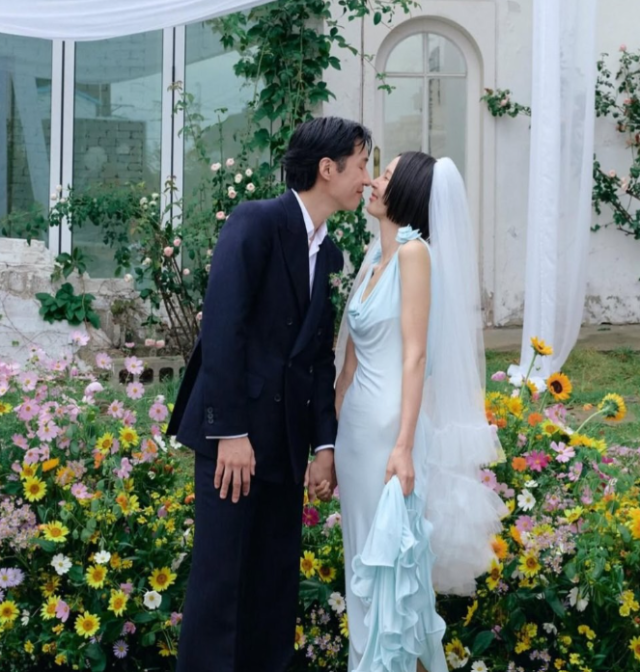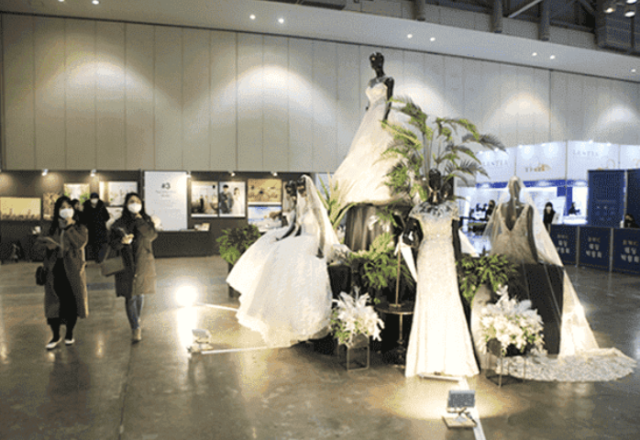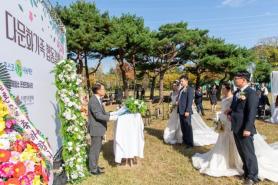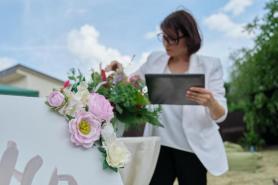
SEOUL, November 12 (AJP) - Bulging wedding costs stand as a growing reason for South Koreans in their late 20s and 30s to put off tying the knot, deepening the country’s demographic woes and prompting antitrust authorities to enforce full disclosure on wedding charges.
Starting Wednesday, wedding service providers in South Korea — including studios, dress rental shops and makeup salons — must disclose all pricing terms, including refund policies, before signing any contracts.
Responding to mounting complaints about sticker shock in the country’s notoriously expensive and opaque wedding procedures, the Fair Trade Commission (FTC) announced revisions to the Mandatory Disclosure Regulation for Key Advertising and Pricing Information.
All wedding-related businesses, from venues and planners to photo studios, must now post prices for base packages, optional add-ons, cancellation penalties and refund terms on their official websites or on the state-run Price Information Portal (price.go.kr).
Violations can result in administrative fines of up to 100 million won ($73,000), with a six-month grace period before full enforcement begins.

Weddings have increasingly turned into a luxury — and a reason many couples skip the ceremonial procedure or forgo marriage altogether. A 2025 survey by the Korea Population, Health and Welfare Association found that 42 percent of unmarried Koreans have “no plans to marry,” with one in four citing financial burden as the main reason.
Including housing, the average cost of marriage now exceeds 360 million won ($266,000), while a single wedding ceremony in Seoul costs about 26.6 million won ($19,600) on average.
According to the latest data from the Korea Consumer Agency, the cost of a wedding in the affluent Gangnam district averaged 33.36 million won as of June, compared with the nationwide average of 20.74 million won. The figure covers the wedding hall fee and the bundled package of photography, dress rental and makeup.
A separate survey by matchmaking firm Gayeon placed the average cost of the bundled package alone at 4.79 million won.
Consumer complaints filed with the Korea Consumer Agency jumped 63 percent between 2021 and 2023.
Korea’s long-standing “showcase wedding” culture — where families compete to stage lavish ceremonies and photo shoots — has fanned wedding inflation and forced many to swallow the extra burden to avoid ruining one of the biggest days of their lives.
Couples say the new rule could correct the exploitative nature of the market.
Kim Ga-hyun (30), who is preparing for marriage, said financial stress often leads to conflict among families and fights between couples. “Wedding costs keep snowballing and cause arguments,” she said. “Knowing prices upfront can be helpful since we at least know what we’re getting into.”
Eunhye Lee, director at the Korea Wedding Planners Association, said the policy will bring mixed results for the industry.
“From a consulting perspective, price disclosure actually makes it easier for us to explain total package costs to clients,” she said. “But many vendors are hesitant because each service combines both product and quality, so it’s difficult to set a uniform standard.”
Still, the move is welcomed by consumers.
Seoul resident Kim Kyu-bin (29), who married in 2023, regrets the rule came too late.
“The extra bill arrived only after I fell in love with a dress. Knowing the price ahead would help plan the wedding more realistically.”
How pricing disclosure will help rationalize costs, contain inflation, or even bolster the country’s record-low marriage rate — 3.8 per 1,000 people — remains to be seen.
Copyright ⓒ Aju Press All rights reserved.




